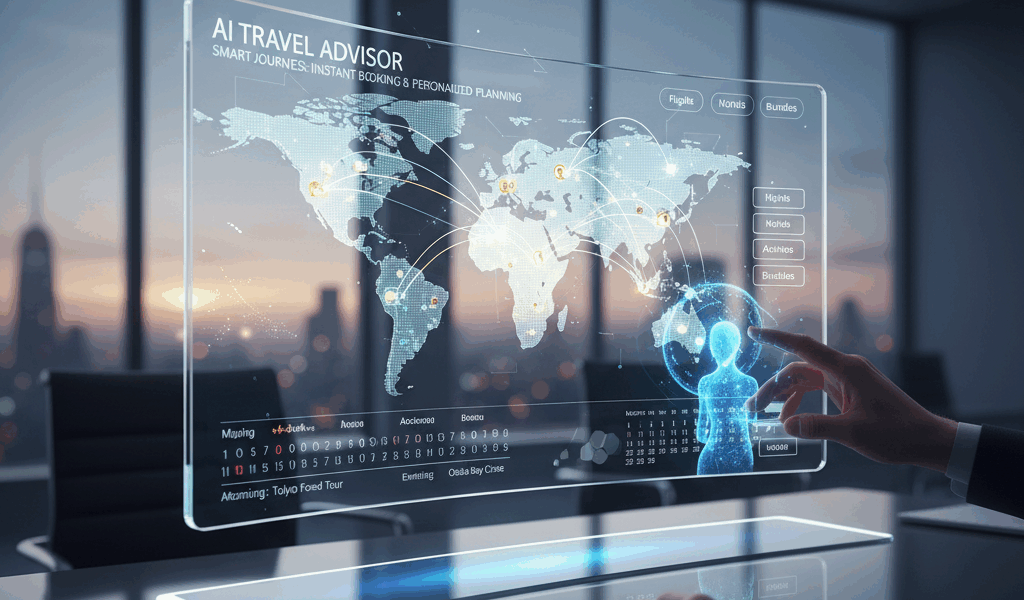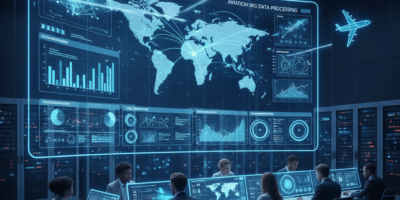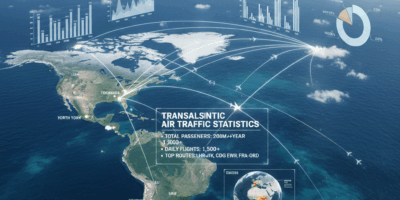Travel AI
Travel AI: Revolutionizing the Way We Explore
Travel has always been an essential part of human experience. With the advent of artificial intelligence, the travel industry is witnessing transformative changes. From planning itineraries to ensuring personalized experiences, AI reshapes how we travel.
AI in Travel Planning
Planning a trip can be overwhelming. AI-driven tools simplify this process. Intelligent algorithms can now analyze large amounts of data to suggest destinations. Platforms like Google Trips and TripHobo utilize AI to create customized itineraries. These services consider user preferences and past behaviors, providing suggestions tailored to individual tastes.
Chatbots and Customer Service
Customer service in travel has significantly improved with the help of AI chatbots. These virtual assistants handle inquiries 24/7, offering swift responses to common questions. They assist in booking flights, hotels, and answering queries about destinations. Platforms such as Skyscanner and Kayak use AI chatbots to enhance user experience.
Personalized Recommendations
AI algorithms analyze user data to offer personalized travel recommendations. These algorithms consider past interactions, search history, and user feedback. As users interact more with these platforms, the recommendations become more refined. This ensures that travelers receive suggestions tailored to their tastes and preferences.
Dynamic Pricing
AI plays a crucial role in dynamic pricing strategies within the travel industry. Machine learning algorithms analyze market trends, demand fluctuations, and competitor prices. This allows airlines and hotels to set competitive yet profitable rates. As a result, travelers often find the best prices for their bookings.
Language Translation
Language barriers can pose challenges during international travel. AI-powered translation tools like Google Translate have become indispensable for travelers. These tools can translate text, speech, and even images. They facilitate smoother communication, breaking down language barriers with ease.
Predictive Analytics
AI-driven predictive analytics enable businesses to forecast future trends. Airlines use this technology to predict flight delays based on historical data and real-time conditions. Hotels apply predictive analytics to manage inventory and optimize booking strategies. This helps in enhancing overall operational efficiency and customer satisfaction.
Facial Recognition Technology
Airport security has embraced AI through facial recognition technology. This streamlines the check-in and boarding processes. Biometric identification ensures faster and more secure verification of passenger identities. It reduces waiting times and enhances overall airport efficiency.
Travel Content Creation
AI contributes significantly to travel content creation. Automated tools generate travel guides, blog posts, and social media content. This content is often customized based on user preferences. Travel companies leverage this to provide relevant and engaging information to their audience.
Smart Travel Assistants
AI-powered travel assistants like Google Assistant and Amazon Alexa help in organizing travel plans. They can manage bookings, set reminders, and provide updates on weather and traffic conditions. Their integration with smart devices ensures a seamless travel experience.
Augmented Reality (AR) Experiences
AI and AR technologies combine to offer immersive travel experiences. Apps like Google Lens and AR City provide interactive maps and virtual tours. These tools enhance the exploration of destinations by offering detailed information about landmarks and attractions.
Health and Safety Monitoring
Travel during the COVID-19 pandemic has highlighted the need for health and safety monitoring. AI aids in tracking health data and ensuring compliance with safety protocols. Applications monitor traveler health and provide alerts and updates on travel advisories.
Sustainable Travel
AI supports sustainable travel initiatives. Algorithms assess the environmental impact of travel activities. They help users make eco-friendly choices by suggesting sustainable transport and accommodation options. This promotes responsible tourism and reduces carbon footprints.
Enhancing Travel Experiences
AI enhances travel experiences through personalized services. Hotels use AI to offer customized amenities based on guest preferences. Similarly, airlines provide tailored in-flight services using data analytics. This personalization results in memorable and satisfying travel experiences.
Virtual Travel Agents
AI has given rise to virtual travel agents. Platforms like Mezi and Lola use AI to assist travelers with bookings and travel planning. These agents predict traveler preferences and offer intelligent suggestions, making the planning process more efficient.
Efficient Resource Management
AI improves resource management within the travel industry. Airlines and hotels use AI to optimize staff schedules and manage inventory. This ensures optimal usage of resources and reduces operational costs. It also enhances service delivery and customer satisfaction.
Travel Fraud Detection
AI helps in detecting and preventing travel-related fraud. Machine learning algorithms analyze transaction patterns and flag suspicious activities. This protects users from fraudulent transactions and enhances the security of online travel platforms.
AI-Powered Search Engines
Search engines like Google and Bing leverage AI to refine travel-related searches. They offer more accurate and relevant search results. This helps travelers find information quickly and easily, improving their planning process.
Tailored Marketing Campaigns
AI aids in creating targeted marketing campaigns for the travel industry. Analysis of user data allows for personalized advertisements and promotions. This increases the effectiveness of marketing efforts and drives higher engagement and conversions.
Real-Time Travel Updates
AI provides real-time updates on various aspects of travel. Whether it’s flight delays, traffic conditions, or weather updates, AI ensures travelers stay informed. This assists in making timely decisions and avoiding potential disruptions.
AI in Tourism Boards
Tourism boards utilize AI to promote destinations. Analyzing tourist behavior data helps in crafting effective promotional strategies. AI-driven insights ensure that promotional efforts target the right audience, maximizing reach and impact.
Automated Data Collection and Analysis
AI automates the collection and analysis of travel data. This includes user feedback, market trends, and competitor analysis. Automated processes provide valuable insights for businesses to optimize their strategies and improve services.
Reducing Human Error
AI minimizes human error in various travel operations. Automated systems handle bookings, customer service, and data management tasks with higher accuracy. This reduces the risk of mistakes and enhances overall operational efficiency.
Energy Efficiency
AI contributes to energy efficiency in the travel sector. Smart systems regulate lighting, heating, and cooling in hotels. This reduces energy consumption and promotes sustainable practices within the industry.
Seamless Payment Solutions
AI-driven payment solutions offer secure and seamless transactions. Digital wallets and AI-powered payment gateways ensure quick and safe payments. This enhances user convenience and security during travel bookings.
Virtual Reality (VR) Previews
AI and VR technologies provide virtual previews of travel destinations. Travelers can explore hotels, attractions, and activities before making bookings. This aids in making informed decisions and enhances travel planning.
AI in Business Travel
AI streamlines business travel management. Platforms like Concur and TravelPerk use AI to manage travel expenses, bookings, and itineraries. This simplifies the travel process for businesses and ensures cost-effective management.
Interactive Voice Response (IVR)
AI-driven IVR systems improve customer service in the travel industry. These systems handle customer inquiries efficiently, providing quick resolutions. They enhance customer satisfaction by reducing wait times and offering accurate assistance.
Predictive Maintenance
AI supports predictive maintenance in the travel sector. Airlines and hotels use AI to predict equipment failures and schedule maintenance. This prevents downtime and ensures smooth operations, enhancing overall service quality.
Reducing Operational Costs
AI helps in reducing operational costs within the travel industry. Automated processes decrease the dependency on manual labor. This results in cost savings and allows businesses to allocate resources more effectively.
Training Artificial Intelligence for Travel
The continuous training and development of AI models are critical. Data scientists and engineers work to refine algorithms based on new data. This ensures that AI systems remain accurate, reliable, and valuable for the travel industry.
Challenges and Considerations
Despite its benefits, AI in travel faces challenges. Ethical considerations, data privacy, and technological limitations need addressing. Continuous monitoring and regulation are necessary to ensure responsible AI usage in the travel industry.



